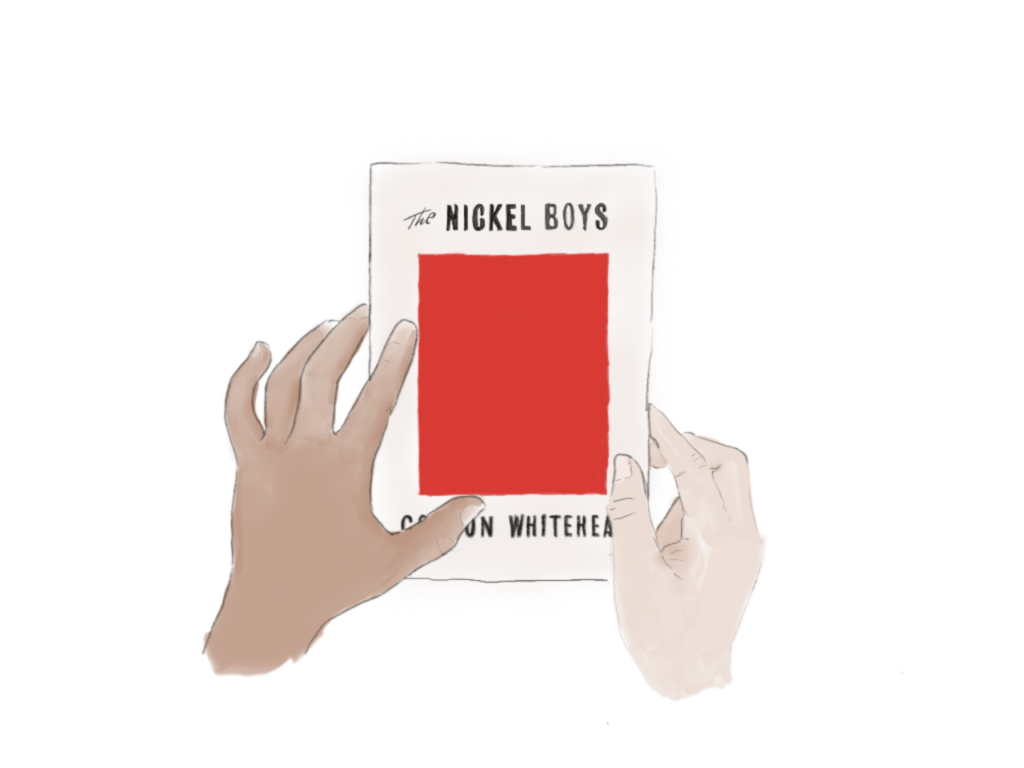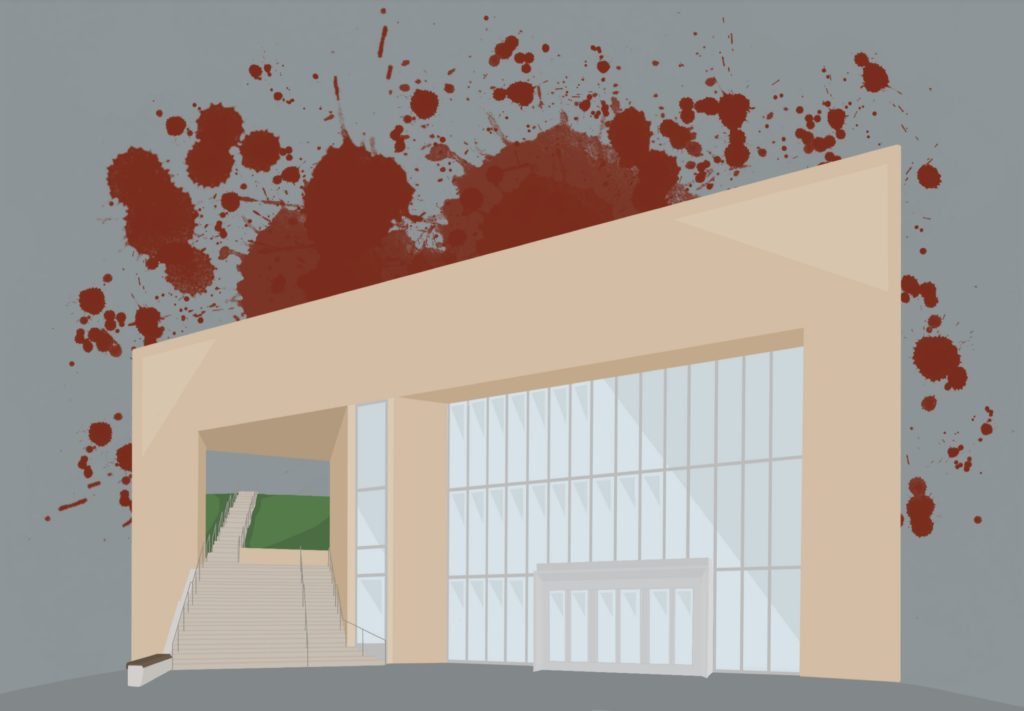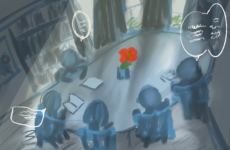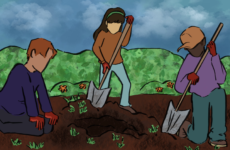My history teacher has a classroom norm that I love. If we feel the need, we can step outside the room when the class is watching a sensitive video or discussing difficult material. She doesn’t know how the subject matter might affect us.
But, what happens when a group of students can never “step outside of the room”? What happens when the material that lies in every page affects us in real time? This was the dilemma I faced as I tackled my two summer reading books, both by Colson Whitehead — The Nickel Boys and The Underground Railroad.

Graphic by Yuko Tanaka/ The Choate News
In the past year, every day has felt like a new tragedy, another name added to a rapidly growing list of killings: Ahmaud Arbery, Breonna Taylor, George Floyd, Elijah McClain. Black people are killed at the hands of white people who abuse their assumed or assigned authority. The words of the police were accepted as truth over those of a Black person — the victim, the innocent. In the case of George Floyd, a video captured by a girl my age showed a chilling eight minutes and 46 seconds of a death at the hands of someone hired to protect the public. This brutality was laid bare for all to see. It’s indisputable: our nation is failing Black people.
TikTok, Instagram, and Twitter gave platforms to global outrage as viral videos swept our world. Everyone I knew was plugged in and absorbing information all the time. Immediate access to videos of people who look like you getting harassed or killed is traumatizing. For some, police harassment and brutality may seem abstract when they watch it on TV or read about it in the news, but the impact becomes more real when it happens to people you know.
On May 31, I watched as the police shattered the car window of a Morehouse College student, a friend of my cousin. He was tased and dragged out of his car by a police officer. He had an epileptic seizure before he was jailed for the night. His crime? Driving home from downtown Atlanta, he got stuck in traffic during protests. The incident, recorded by a bystander, went viral on social media.
On June 8, I awoke to my mom shaking as she read an article about my 19-year-old friend being pulled over for no reason. The police officer, who did not identify himself, had screamed at her to put her hands on her dashboard while yelling: “Do you have a gun? Do you have a gun?” She was on her way to a picnic.
So, as I began my summer reading, I couldn’t help but draw parallels between these historical narratives and my own life. Though set in different time periods, the worlds of both protagonists are dictated by white supremacy in the United States. Both books navigate the trauma that the characters experience in graphic and blunt language. The Nickel Boys, set at a Florida reform school in the 1960s, reads, “The leather slapped across the ceiling before it came down on your legs, to tell you it was about to come down, and the bunk springs made noise with each blow.” On page four of The Underground Railroad, which details the harrowing plight of escaped slaves in the antebellum South, a character is sexually violated. I put the novel away for months, unable to stomach another traumatic episode against a Black person.
For Black students, the violent systems of racism depicted in these novels are not confined to those pages — they are an everyday reality. In a recent panel facilitated by the Pathways Program, clinical psychologist and professor Dr. Shawn T. Jones, gave listeners many examples of racial stress, a term he defined as, “a bevy of multifaceted ways in which racism reaches out and touches us.” He said, “Racial trauma is the manifestation of traumatic symptomatology that results from racially stressful experiences.” Dr. Jones shared his experience watching someone that looks like him getting shot in the back seven times on the news, not being able to sleep, and being terrified of loud noises or sirens as a result. “Well, these symptoms start to sound a lot like a psychological disorder called PTSD.” I was in a state of shock. I could hardly distinguish these symptoms from my own after the murder of Ahmaud Arbery.
I am so thankful to Choate for assigning stories that depict the reality of the racial violence our nation is built on and for giving students the option to read an alternate book. Indeed, I have learned so much from my classmates as we unpack these books through difficult discussions around the virtual Harkness table.
We must never forget that a fictional account for some students may be very real for others, and students may feel uncomfortable asking for an exemption. It’s likely very isolating to be the only student in an English class who hasn’t read the book as the rest of the class has a Harkness discussion.
I can’t claim to know how to tread this line between practicing sensitivity and leaning into discomfort, but I do know that we must keep trying to do so. I can only hope that our community keeps giving space to uncomfortable topics. May this dialogue continue.




